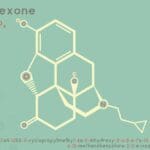“It’s not alcoholism until we graduate!”
This semi-sarcastic phrase has often been chanted among college students as a way to rationalize their decision to abuse drugs and alcohol. The logic might seem absolutely unbelievable to most people, but the reality is that these young adults fully know that their reasoning is false.
Nonetheless, the pressures of their culture make it extremely difficult to really believe that the consequences of using substances while they are young could ever be long-lasting. The worst that could happen is you make a fool of yourself, kiss the wrong person, or end up having a horrible hangover, right?
While addiction is certainly not a conscious choice but a biological illness, the widespread pervasiveness and seduction of this “short-term reward mindset” can lead to a slippery slope. Choosing to ignore the potential consequences encourages many people to recreationally use substances that they know could become very addictive.
Even in “one-time only” situations, some people’s bodies and minds have more of a disposition towards developing an addiction than others. While there are some easily identifiable factors that contribute to that disposition, in most cases you cannot know until it is too late.
Getting Treatment for Substance Abuse
College students face unique recovery challenges in regards to handling peer pressure, reaching academic goals, and building an independent sober life. In recognition of this, there are many treatments and organizations that are designed to help young adults and college students in addiction recovery.
Many colleges and universities also have resources that can serve as a support system for young adults transitioning from a substance abuse recovery program at a center like the Aviary back into their old environment. Additionally, these kinds of organizations can be proactive and preventative by raising awareness of the reality that using drugs and alcohol can have lifelong consequences.
Missouri area programs include:
- University of Missouri’s Sober in College (SiC): SiC’s mission is “to help students enjoy an authentic college experience without the use of alcohol or other drugs” and welcomes those who are in recovery from addiction and/or “who choose to live a sober lifestyle.”
- Missouri State University’s Collegiate Recovery Program (CRP): CRP has a similar mission as SiC in supporting “students as they live a life in recovery” and in being a positive and non-judgmental presence on campus.
- St. Louis University’s Collegiate Recovery Community (CRC): CRC provides support for students in recovery. “By nurturing you as a whole, the CRC encourages you to achieve higher standards for yourself, within and beyond your program of recovery.” CRC fulfills their mission in many of the same ways as SiC and CRP: hosting social events, support group meetings, providing a safe and healthy environment, etc.
- Washington University’s Recovery Group: provides a safe place for students in recovery to connect with others and find resources for support, meetings, and activities, with optional weekly on-campus meetings.
- Maryville University‘s Collegiate Recovery Program (CRP): Maryville’s Office of Personal Counseling provides a supportive place for students who have a desire to be in recovery. Maryville CRC is not a 12-Step program, but it is 12-Step friendly.
Prevention and recovery should be a priority for every person struggling with addiction, but similar to any other physical illness, there is an added emphasis for young adults to receive early treatment. They still have many years ahead of them that will either be used to continue abusing substances or living a free and sober life.
(314) 464-0222. We’re here to help.










